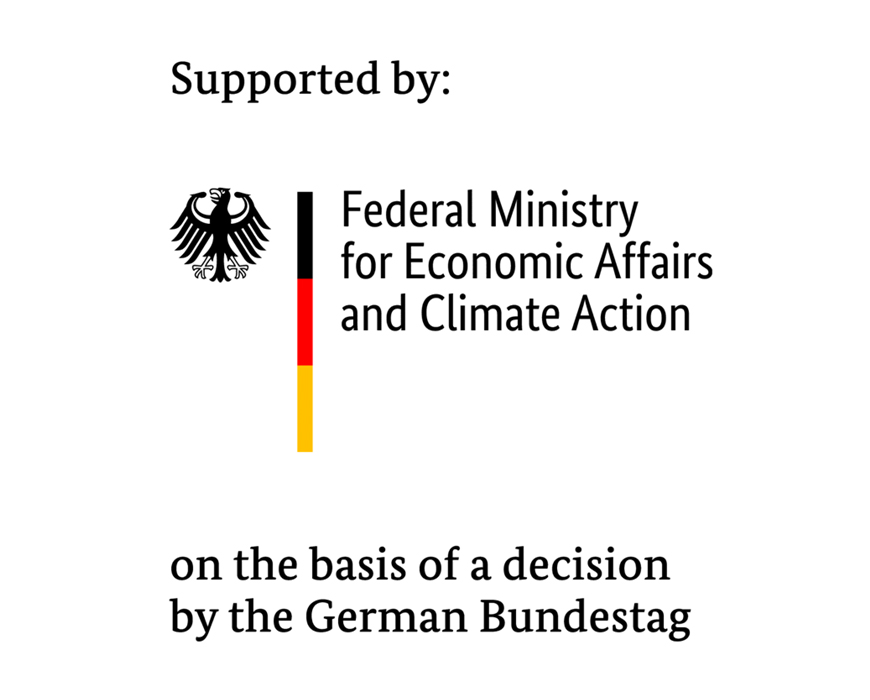EWiNo improves wind field modeling and wind farm operation in complex terrain
The aim of the research project EWiNo has been to examine the use of new technologies for the improvement of wind modeling and optimization of wind farms in complex terrain. Under the management of the Fraunhofer Institute for Wind Energy Systems IWES, ENERTRAG, GEO-NET, and other well-known industrial partners are working together to put new ideas and research approaches into practice with the aim of not only being able to harness wind energy in the North in the future.
The new generations of wind turbines make it possible to use sites in uplands and forests, which would previously have been impossible to develop for economic wind farm operation. However, along with the ever-larger rotors, the growing hub heights, and the complex flow conditions over forests, mountains, and valleys, the forecasting of energy yields is also becoming increasingly challenging.
Simple linear models like those developed and deployed in the early days are no longer suitable for accommodating complex wind conditions and satisfying the high demands on precision – sophisticated and computationally intensive 3D models have long since become the standard. To enhance the accuracy of these models even further, in cooperation with ENERTRAG, one of the leading project developers, the experienced wind experts at GEO-NET, and other well-known industrial partners from the wind sector, Fraunhofer IWES was conducting the EWiNo project (Development of a two-stage procedure for assessing the wind potential of wind locations as per the German Renewable Energy Act (EEG) amendment 2017). The project is being funded by the Federal Ministry for Economic Affairs and Energy on the basis of a decision by the German Bundestag (FKZ 0324225 A/B).
When planning a wind farm, the wind conditions are measured using a LiDAR device or measuring mast, which record the wind speed and direction at one location in the farm. A model is then used to transpose the wind conditions from this location to the actual sites of the turbines in the farm.
This project also employs a new technology to record the accuracy of this process more effectively and to improve the models even further. The use of a scanning LiDAR system allows measurement of the wind conditions at virtually any location in a wind farm. These measurements can subsequently be used to validate various 3D models such as FITNAH-3D and OpenFOAM, including under difficult conditions in forests and in complex terrain, so as to optimize the models. Furthermore, methods were developed to allow the measurements recorded with such scanning LiDAR devices to be employed in normal wind farm planning too. As an operator of numerous wind farms, primarily on lowlands, ENERTRAG is also planning wind farms in the complex terrain of German uplands. ENERTRAG has provided a development site in North Hesse for the purpose of the EWiNo project. This site offers ideal research conditions for the use of the scanning LiDAR technology.
The results will help to render yield forecasts more precise, including in forests and on complex terrain, and will thereby facilitate the planning of wind farms under such conditions in order, ultimately, to make their subsequent operation more efficient. As such, this project is making a further contribution to the success of the energy transition.
Contacts:
Fraunhofer Institute for Wind Energy Systems IWES • Dr. Julia Gottschall • Senior Scientist • Am Seedeich 45 • 27572 Bremerhaven, Germany • Telephone: +49 471 14290 354 • www.iwes.fraunhofer.de
GEO-NET Umweltconsulting GmbH • Johannes Becker • Authorized Officer, International Projects, Wind Measurements • Große Pfahlstraße 5a • 30161 Hanover, Germany • Tel.: +49 511 3887200 • www.geo-net.de
ENERTRAG AG • Dr. Nadine Haase • Head of Department for Communication and Marketing • Tel.: +49 39854 6459368 • nadine.haase@enertrag.com
Fraunhofer IWES secures investments in technological developments through validation, shortens innovation cycles, accelerates certification procedures, and increases planning accuracy by means of innovative measurement methods in the wind energy sector. At present, there are around 220 academics and employees as well as more than 80 students employed at the five sites: Bremerhaven, Hanover, Bremen, Hamburg, and Oldenburg.
GEO-NET is an interdisciplinary technology-oriented company with a headcount of 45 in the field of renewable energies, environmental meteorology, and environmental planning. GEO-NET has been involved in development, consulting, and testing since 1996 and is a service provider for industry, banks, and associations as well as public-sector customers, from local councils right up to federal agencies. In the field of wind energy, GEO-NET is accredited for the performance of wind measurements and the preparation of wind and energy yield reports and has been actively involved in the further development of models and technologies in this area for years.
ENERTRAG provides all services in connection with renewable energies. We efficiently merge electricity, heat, and mobility in all areas of life. As an energy producer with an annual production of 1.5 million MWh in its portfolio and a service network for more than 1,120 wind turbines, we know from our own experience what matters to our customers. With more than two decades of experience in Europe, our 630 employees offer the expertise required for successful operation and efficient maintenance as well as for the community-oriented planning and reliable construction of energy facilities and networks through to complete power plant groups.


Last modified: